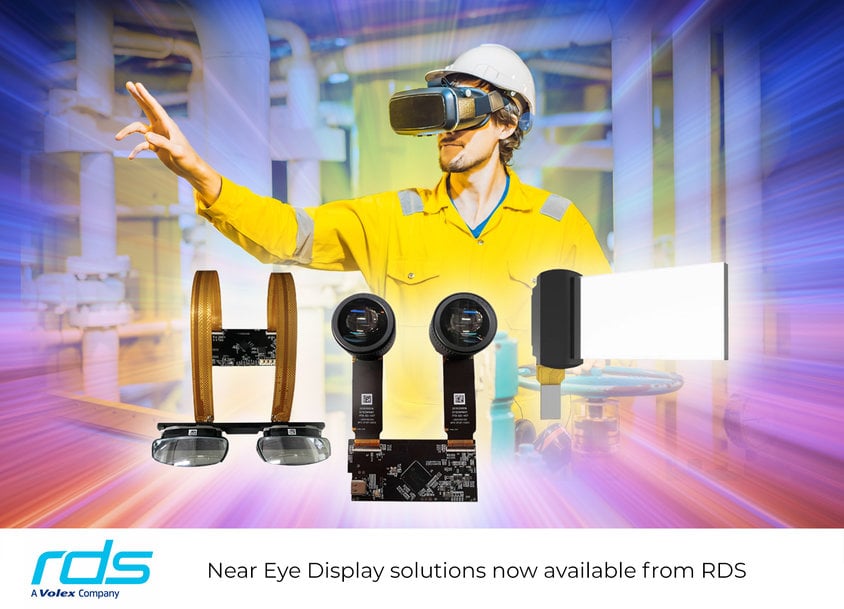Near Eye Display module solutions provide immersive viewing experience
High resolution micro-OLED and LCD displays feature in industrial NED modules.

Display solutions and embedded systems provider, Review Display Systems (RDS) has announced the availability of a range of immersive Near Eye Display (NED) modules. A range of high-performance micro-OLED and micro-LCD displays featuring ultra-high resolution, high brightness, high contrast and low power consumption are available in NED module solutions.
Near eye display solutions are increasingly being used in wide range of industrial display systems such as inspection equipment, remote control systems, microscopes, electronic view finders, thermal imaging, medical diagnostic equipment and defence systems.
The current line-up of NED modules available support a range of micro-OLED and micro-LCD displays from 0.32-inch to 1.35-inch diagonal screen size, with pixel resolutions ranging from 800 x 600 pixels up to 3552 x 3552 pixels, and brightness specifications from 1800cd/m² up to 20,000cd/m². MIPI and RGB interfaces feature throughout.
The NED module solutions feature three different optical module types which include Birdbath, Pancake and Waveguide designs which support different applications and usage. These modules differ in how they project the image from the display source to the user’s eye.
- Birdbath optics consist of a curved mirror that reflects light from the display into the user’s line of sight. This solution has the advantage of being low-cost and lightweight. Although birdbath optics are not the thinnest technology, it has excellent display performance and supports dioptre adjustment.
- Pancake optics uses a flat mirror to fold the light path from the display to the user’s view, creating a thin and compact design. Pancake optics use very high resolution and bright displays, which can increase cost and power consumption.
- Waveguide optics uses a thin transparent lightguide to transmit light from the display to the user’s eye through internal reflection. Although complex, Waveguide optics can achieve a very slim and lightweight design.
Justin Coleman, displays division manager said, “Although the consumer market for virtual and augmented reality is one of the fastest growing market segments for Near Eye Displays, the continued design and development of near eye display technology is finding many new and potential industrial applications. Near eye display systems offer several key advantages over traditional full-size displays including extremely compact size, high portability and very low power consumption.”
Near Eye Display optics, which are also often used in wearable equipment, create a high resolution, large field of view display image for one or both eyes. Near eye applications enable the human eye to perceive a virtual display image that appears much larger, at a greater distance, and in a highly compact physical environment.
Near Eye Display module solutions featuring micro-OLED and micro-LCD technology are now available from Review Display Systems.
www.review-displays.com

